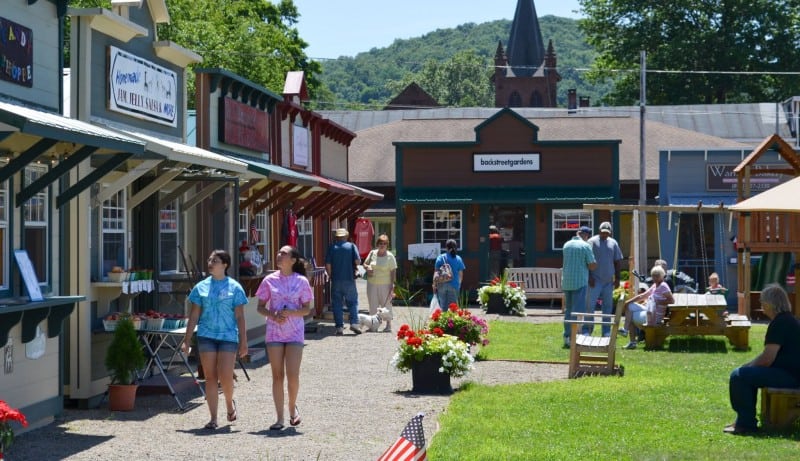
Tiny, Temporary businesses set up Together in the Tionesta Maket Village. Photo by Julia McCray. Used by permission of Forest County IDA/IDC.
Rural and small town businesses aren’t limited to the downtown mom-and-pop stores or the businesses recruited into the industrial park any more. In fact, rural businesses today don’t really have to look like any of the traditional business models for small towns.
The traditional way to go into business in a small town was to have an idea, try to find a usable location, develop a business plan, create your legal organization, then figure out marketing, staffing, financing, and more. You needed a lot of personal assets, great credit, good connections, experience, and maybe even insider knowledge. This puts a huge barrier between an idea and going into business in the traditional model.
The new, innovative models tear down barriers to entry. Today’s Innovative Rural Business Models include tiny, temporary, together, trucks and trailers, and creative ownership. They add up to new ways for more people to participate in the benefits of owning a business with less risk of catastrophic failure.
Tiny:
Expecting one single business to fill an entire building is a barrier to entry. Divide large spaces up, allowing many different businesses to fill just one tiny space.
In Washington, Iowa, there is a business called The Village. The huge old department store sat empty for decades because no one could fill all 15,000 square feet. It has now been divided up into a little “village” of shops that have only a few hundred square feet to fill. These smaller spaces give a lot more people the opportunity to try out a business idea.
Tionesta, Pennsylvania (pop. 500), had an empty lot where a building burned. After waiting 10 years for a developer to rebuild a full-size building for a single business, the industrial development board decided to try tiny businesses. They put in garden sheds, the big ones that are a few hundred square feet inside, and dressed them up with 1800’s style false fronts to harmonize with the downtown buildings. The result is called the Tionesta Market Village. People run their tiny businesses inside the sheds. They might never have had the resources or assets to start a traditional downtown storefront, but they can rent a tiny space and get started.
Temporary:
Businesses may pop-up for a day, week, or season. Our old image of our traditional business has them lasting for years, maybe decades with little change. Our new businesses may come and go in a flash as the owners learn something, earn more assets, and gather more fans and customers for their next venture.
Think about booths at events as opportunities to test entrepreneurial ideas and products. Almost every town has some kind of special event that could allow booths that enabled more business experiments to happen.
Delaware used pop-ups during the holiday season as a stepping stone to creating new long-term businesses. Delaware Economic Development’s Project Pop-up looked for people who had already started building a following for their business either online or with booths or tiny locations. They selected 18 of the most promising to fill holiday season pop-up stores. Of the 18 selected, 17 went on to sign a long-term lease and go into a full-scale business.
Together:
Rural people know how to work together, how to rely on each other. That’s why we excel at this model, where separate businesses share a space. Small towns have many examples of a store inside another store, a business inside a business, as well as co-working spaces, maker spaces, shared studios and galleries, and shared commercial kitchens.
Homewood, Illinois, did seasonal pop-ups during the holiday season, including temporary businesses inside of other businesses. An empanada maker popped up inside a furniture store. Each brought new customers and attention to the other, and both businesses benefitted.
Co-working and maker spaces bring together diverse small businesses to share the assets of a physical location and to connect with each other. Shared art studios and galleries, like the ARTesian Galleries in Sulfur, Oklahoma, extend the sharing and networking benefits to artists.
Commercial kitchens can be expensive to certify and may sit idle much of the time. That’s another barrier to entry for traditional businesses. Sharing kitchens can lower that barrier, allowng many new experimental businesses to pop-up. In tiny Dacoma, Oklahoma (pop. 107), the former elementary school building sat vacant until locals converted it to a commercial kitchen incubator. A local family brought out their traditional recipe for pickles and used the incubator to launch a thriving business.
Traveling:
You’re used to seeing food businesses operating out of trucks and trailers, but this idea has expanded. Rather than depending on the market in one town only, innovative businesses are hitting the road to round up customers. Retail stores and boutiques now commonly operate from a truck or trailer. Service businesses are using this model, too: wedding planners, financial consultants. Just about any kind of business could go mobile, so this model appeals to established retail stores looking to expand outside their local reach as well as new businesses looking to get started.
Ownership:
Especially for rural areas where people don’t have a lot of personal assets or wealth, the traditional model of risk of ownership may be too much for one person to bear alone. That’s why community ownership, cooperatives, and employee-owned models are appealing.
Cody, Nebraska (pop. 154), has a community-owned and student-run grocery store, the Circle C Market. The students even built the building! Now, they run the store.
Spreading Opportunity
By tearing down the old barriers to entry, the Innovative Rural Business Models spread opportunity to many more people. You don’t have to have personal wealth to get started. You don’t need all the best connections. You don’t have to risk everything on a big experiment.
You can start small. You can try it just for a day. If you fail, you can recover quickly. If you do well, you can parlay that into a larger try.
Learn More Here
Learn more about the Innovative Rural Business Models in the video library at SaveYour.Town.
- About the Author
- Latest by this Author
Becky started Small Biz Survival in 2006 to share rural business and community building stories and ideas with other small town business people. She and her husband have a small cattle ranch and are lifelong entrepreneurs. Becky is an international speaker on small business and rural topics.
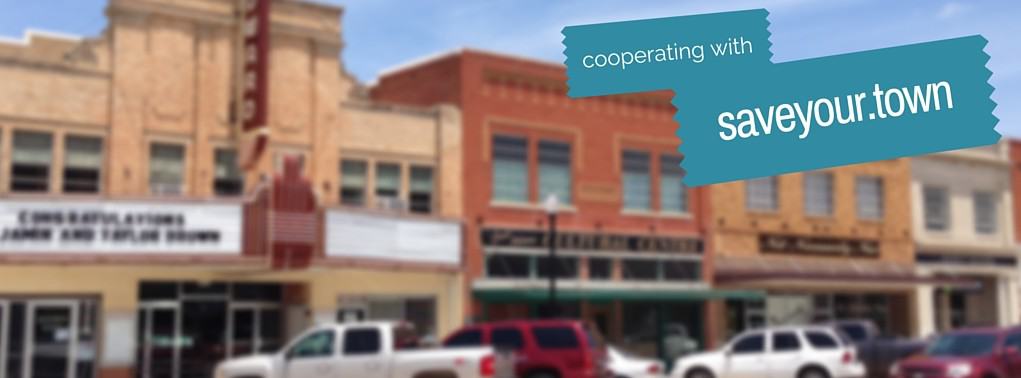




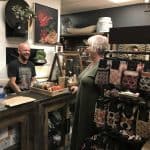

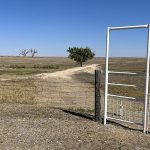
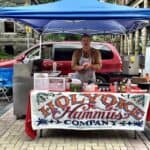

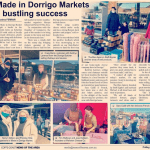
Joann sent this comment about hosting pop-ups in her business:
My partner and I have a winery business (Nearwood Winery). He makes the wine and I’m in charge of customer experience. We have a small tasting room on the square in Knoxville. We’ve found that pop-up shops or a one-time event seems to bring in customers. Our next community event is “Living Windows” which kicks off the holiday shopping season. We invited a crafter to set up her “shop” inside our wine tasting room for that evening. She sells hand made gift bags that hold a bottle of wine. Other pop ups we’ve had is book signings by local authors and art exhibits by local artists. All these type of promos seem to bring in customers. We try to focus on products/services that enhance the wine experience. Our motto is “where creatives gather.”
Joann